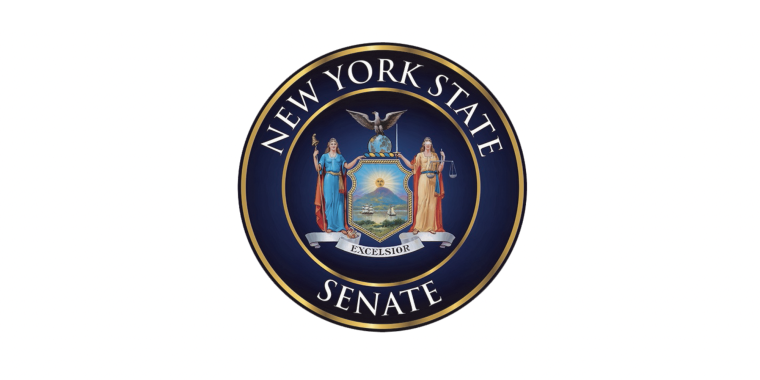
Senators Introduce “Wine Industry & Liquor Store Revitalization Act”
Liz Krueger
July 27, 2009
-
ISSUE:
- Economic Development
- Alcohol
Comprehensive Economic Development Plan Will Benefit Wineries, Allow Sales in Grocery Stores & Enact Major Blue Law Reforms
(Albany, NY) In a move that will provide much-needed economic development to struggling wineries, grape growers, and small businesses, a comprehensive proposal has been introduced in the New York State Senate that will allow for the sale of wine in supermarkets and grocery stores and also enact vital reforms to the state’s “Blue Laws” to benefit liquor store owners.
The “Blue Laws” have been notorious inhibitors to economic growth. The Blue Laws were so extreme they prevented the sale of beer and liquor on Sundays until just a few years ago. They’ve also prevented small liquor stores from growing, expanding and franchising.
This legislation (S5787) has been introduced by Senator Liz Krueger (D-Manhattan) as well as in the Assembly (A8632A) by Joseph Morelle (D- Irondequoit). The Senate version already has 11 other co-sponsors. This bill would:
· Allow grocery stores to carry wine.
· Replace the off premise liquor licenses with a medallion system. The SLA then simply moderates the number of medallions available, and when a store closes, the medallion can be sold to another business, cutting the time they have to wait to open their doors, and allowing the seller to recoup their investment.
· Allow for “complimentary” items to be sold in liquor stores, such as non-carbonated beverages, snacks, etc.
· Extend the hours of operation for liquor stores permitting them to open as early as 8 AM and close as late as 3 AM. (9 PM on Sundays).
The bill also allows for retail-to-retail sales empowering, in particular, small liquor stores and small bars who don’t have a high volume of sales.
Senator Krueger, Vice-Chair of the Senate’s Finance Committee said: “This legislation gives liquor stores the opportunity to fairly compete for business by eliminating antiquated and unnecessary Blue Laws. It also increases the opportunities for wine sales for our valuable grape and wine industry, while increasing state revenues. Very few people realize that New York is the third largest producer of wine in the country. This bill will help New York's wine industry grow into its rightful place of prominence in the nation.”
An earlier attempt in this year’s state budget to allow for the sale of wine in grocery stores failed because of concerns that small liquor stores would be hurt, and that much-needed reforms to the Blue Laws were being ignored. Krueger and Morelle developed this legislation to address those concerns. It is expected to raise hundreds of millions in new revenue for the state annually.
Assemblyman Morelle said: "With this legislation, we take a step toward putting New York’s wine and grape industries on a level playing field with those in other states. At the same time, supermarkets and liquor store proprietors will have the opportunity to expand their product lines and explore new avenues of competition, and taxpayers will benefit from more than $150 million in new revenues to state government. I see this as a win for all involved, and I thank Sen. Krueger for her diligence in moving this forward."
Senator Darrel J. Aubertine (D-Cape Vincent), Chair of the Senate’s Agriculture Committee said: “Moving wine to the shelves of grocery stores has been a shot in the arm for agriculture and winemakers in other states—but we could not afford to let this growth come at the expense of another group of small businesses, the local liquor stores. This legislation frees up liquor store owners to expand their sales, giving them the flexibility needed to keep their small businesses open while opening up new opportunities for another group of small businesses, our New York wineries and grape growers.”
Senator Martin Malavé Dilan (D-Brooklyn) said: ”Existing laws governing liquor store sales are out of touch. They have done little more than tie the hands of small store owners and drive others out. These new measures will allow these stores to become more competitive and pass along savings to the consumer. For New York wine producers, it opens the door to a whole new market.”
Senator Carl Kruger (D-Brooklyn), Chair of the Senate Finance Committee said: “The Wine Industry and Liquor Store Revitalization Act will provide a much-needed boost to industries that are critical to New York State’s economy. This long-overdue measure is an important mechanism for securing our fiscal future by jump-starting businesses that are equipped to fuel further growth.”
Senator Ruth Hassell-Thompson (D-Westchester/Bronx) said: "During these difficult economic times, we cannot afford to place unnecessary restrictions on small businesses in our communities. I am pleased to be a sponsor of this legislation which will help New York's wine and grape industry reclaim its former standing."
Senator Shirley L. Huntley (D-Queens) said: “This piece of legislation was long overdue and I am excited that local grocery stores across the state will experience a much needed stimulus. The changes made to the existing law may seem minute but in actuality it has the potential to create up to $105 million in revenue for the state in a difficult economic period, as well as, provide an opportunity for the state to compete in the booming wine industry.”
Scott Osborn, President of New York Wine Industry Association said: “New York Wine Industry Association applauds the New York State Legislature for their leadership and support for the Wine Industry and Liquor Store Revitalization Act. This legislation will keep small struggling family farms in depressed rural communities from going out of business and give our wine industry the growth opportunity it deserves. The New York Wine Industry encompasses wineries, grape growers, and supplier companies that will all be positively affected by these much needed reforms.
###
Share this Article or Press Release
Newsroom
Go to Newsroom


